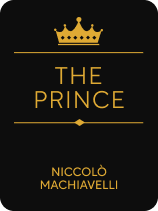

This article is an excerpt from the Shortform book guide to "The Prince" by Niccolò Machiavelli. Shortform has the world's best summaries and analyses of books you should be reading.
Like this article? Sign up for a free trial here .
What does Machiavelli mean by “virtú”? How does it differ from the modern understanding of virtue?
In The Prince, Niccolò Machiavelli sets forth several qualities that great princes (rulers) have. According to Machiavelli, virtú is the characteristic that stands above the rest. However, it doesn’t mean exactly what its apparent modern equivalent means.
Keep reading to find out what virtú is to Machiavelli.
Machiavellian Virtue
According to Machiavelli, virtú is what makes a prince great. He defines it as their ability to take decisive action and to stand as an individual.
(Shortform note: Most translators do not interpret this word, virtú, as its most obvious English equivalent, virtue, since Machiavelli rarely uses the word to describe a prince’s goodness or morality. Instead, he uses the word to mean boldness, skill, courage, willpower, or strength. One translator has suggested that the best modern equivalent of virtú for English readers would not be an English word at all, but a Yiddish one: chutzpah.)
Machiavelli’s ideal prince is unafraid to affect radical change or to begin military offensives, takes advice without being steered by others, always thinks ahead to anticipate threats, and prioritizes the survival of the principality. To appear ‘virtuous,’ as Machiavelli defines it, a prince shouldn’t aim to appear morally good, but to appear as someone whose continued success can be relied upon.
According to Machiavelli, a prince lacking in virtú will eventually lose their state, either because they fail to overcome the odds (that is, they were unable to deal with changes in fortuna) or because no one respects them as a leader.
| Virtú and the Cult of Personality The formation of a modern cult of personality, in which a political figure is worshiped as the absolute best a society can offer, often relies on the same characteristics Machiavelli describes with the word virtú. The leader at the center of such a cult will emphasize their strength, boldness, and independence, promising to do things ordinary politicians shy away from and to enact radical positive change. Whether or not they are morally good is less important than the fact that they’re good for the state; they will protect it from outside threats and bring it to new heights of prosperity. However, their ability to hold onto power is linked to their ability to maintain this image. If it’s compromised or they fail to deliver on certain promises, the people’s faith in them is weakened and their leadership, or even the entire state, may collapse. |

———End of Preview———
Like what you just read? Read the rest of the world's best book summary and analysis of Niccolò Machiavelli's "The Prince" at Shortform .
Here's what you'll find in our full The Prince summary :
- Niccolò Machiavelli's description of how authoritarian leaders should rule
- An unapologetic depiction of the “real truth” of politics
- Analyses of how Machiavelli's lessons survive in modern-day politics






